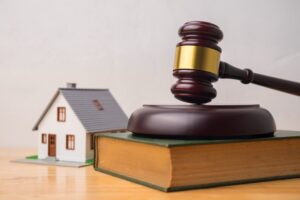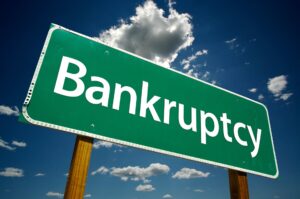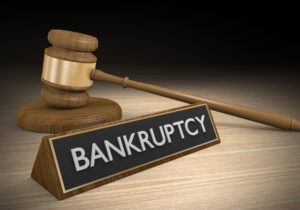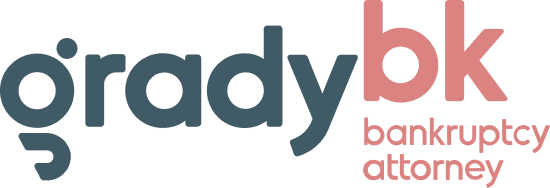Struggling with debt can be an overwhelming and even shameful experience. People often feel embarrassed about their financial troubles and gradually lose hope in their ability to dig themselves out of debt. However, it’s essential to recognize that you are not alone in your economic hardship. Individuals, families, and small businesses across the country continue to struggle with large amounts of debt, and it can be difficult to understand your options for finding the relief you need. If you are ready to explore your debt relief options in Central New York & The North Country, enlist the compassionate guidance of an experienced bankruptcy attorney. Together, you can determine the most strategic path forward. Below is a brief overview of some of the benefits of filing a Chapter 13 bankruptcy to help you obtain a fresh financial start.
Exploring Your Bankruptcy Options in New York
People struggling with debt often pursue either a Chapter 7 or Chapter 13 bankruptcy filing. Both of these options aim to release the debtor from personal liability for certain types of debts. Once they obtain a discharge, they can immediately begin to rebuild their credit and regain control of their financial situation.
Chapter 7 Bankruptcy
To qualify for Chapter 7 bankruptcy, your income and assets must fall below a certain level to demonstrate that you would be unable to repay the debts you owe to your creditors. A court appointed trustee will confirm that you do not have any assets that are not protected (the law gives you exemptions to protect your property). At the end of the Chapter 7 bankruptcy, the court will wipe away your dischargeable debt, and you can start to immediately rebuild your credit. This process typically takes between three to four months in total. People with few financial resources often find success through Chapter 7 bankruptcy.
Chapter 13 Bankruptcy
Those who do not pass the means test—meaning their income and assets are sufficient enough to disqualify them from pursuing a Chapter 7 bankruptcy filing—may find greater success in pursuing a Chapter 13 bankruptcy. When you file for Chapter 13 bankruptcy, you will commit to repaying a percent of your debts over a three- to five-year period. If you meet the terms of the repayment plan, you may keep certain non-exempt assets in your possession. Once the repayment period concludes, the remaining debts are discharged (wiped away). Chapter 13 bankruptcy usually works best for those with a steady income who wish to stop foreclosure or repossession while regaining control of their unexempt property.
Debts That Cannot Be Discharged in Bankruptcy
While bankruptcy can help you put most of your debts behind you, there are some types of debts that cannot be discharged (wiped away) through a Chapter 7 or Chapter 13 filing. Some of the most common examples of non-dischargeable debts include alimony, child support, income or sales tax, student loans, debts you owed for the death or personal injury of another person when you operated a vehicle while under the influence of drugs or alcohol, and any debts you failed to disclose in your bankruptcy filing. However, there are exemptions to these general rules, so it’s worth discussing the specifics of your situation with an experienced and trusted New York bankruptcy attorney to learn more.
Debts Typically Discharged During Chapter 13 Bankruptcy
As long as you continue to meet the terms of your Chapter 13 repayment plan, the court will discharge (wipe away) several types of debt upon the successful completion of the three- to five-year repayment period. For instance, outstanding credit card balances are dischargeable, as are medical bills and uncollateralized personal loans (like a payday loan or personal loan). Each person’s financial situation is different, so seek the guidance of a trusted bankruptcy attorney to help you understand and identify the debts you will be able to discharge through a Chapter 13 bankruptcy filing.
What Happens After the Debts are Discharged
Once you have completed the obligations of your repayment plan, the court will issue an order of discharge and send it to all creditors. This notice informs creditors that any debts owed to them have been discharged (wiped away), and they must stop from further collection efforts. Once you’ve obtained a Chapter 7 discharge (in Chapter 13 you will start to rebuild your credit before you receive your discharge), you can start channeling your efforts into rebuilding your credit and regaining control of your economic situation. This can seem like a daunting task, but your bankruptcy attorney can help you establish a plan for getting your financial situation back on track.
Compassionate Legal Guidance When You Most Need It
Although bankruptcy aims to help individuals and businesses regain control of their finances, many people continue to view bankruptcy as an embarrassing or even shameful option. Unfortunately, this fear can prevent you from taking the necessary steps toward a brighter future. If you are ready to get and stay motivated to change your economic circumstances, consider discussing your options with a knowledgeable and compassionate Central New York & North Country attorney. Your lawyer will not judge you—instead, their goal is to give you the information and support you need to make positive changes in your life.




